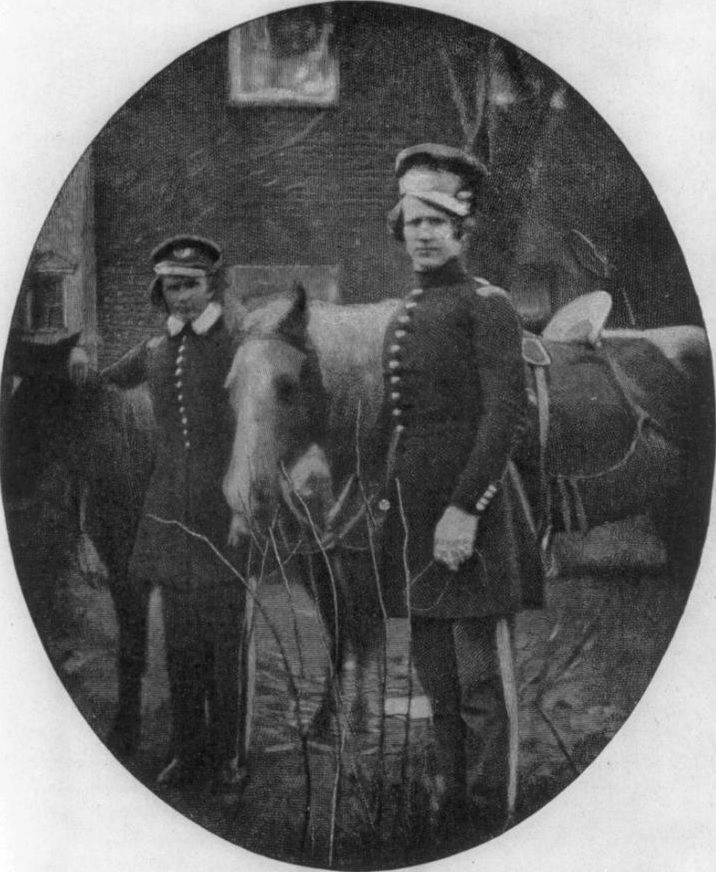
Debates over whether Robert E. Lee was a great strategist or a successful strategist blur the lines between strategy, the operational art, and the battlefield proper.
Lee's challenge was to covert his success on the battlefield in Virginia from June 1862 to May 1863 to lasting Confederate advantage.
That record was mixed.
That record was mixed.
In the Seven Days against McClellan Lee relieved the immediate threat against Richmond, but it was the US high command's decision to shift McClellan from the James River to northern Virginia that had more lasting consequences.
Lee was unable to convert battlefield success at Second Manassas into lasting strategic advantage. That battle demonstrated how durable Civil War armies were on the battlefield. Badly outflanked, Pope still managed to rally to thwart a more decisive blow.
The invasion of western Maryland was problematic from the beginning. Unionist sentiment was strong in western Maryland; success at Harpers Ferry was overshadowed by stalemate at Sharpsburg. Aside from Harpers Ferry, the campaign achieved nothing for Lee or the CSA.
It is difficulty to see how it could have been otherwise, because Lee's forces were most dangerous during this campaign when they were on the move. Deciding to stand at Sharpsburg brought no commensurate benefit.
US bungling on the march paved the way for Lee's next victory at Fredericksburg. Even Lee understood that the results were not decisive. US defeat meant some uneasy moments in Washington but did nothing to delay the issuance of the Emancipation Proclamation.
Chancellorsville was another battlefield win that did little to alter the larger strategic picture. It perpetuated a strategic stalemate in Virginia at significant cost.
Neither Fredericksburg nor Chancellorsville significantly shifted the strategic picture.
Neither Fredericksburg nor Chancellorsville significantly shifted the strategic picture.
That may be the biggest lesson of Chancellorsville. On the face of it, it looks like a masterful battle. But what did it really achieve? Nothing. Even Lee knew that. Converting battlefield success to strategic advantage continued to elude him. Ethan Rafuse is great on this.
The invasion of Pennsylvania may have taken the war out of Virginia for a month and the foraging may have replenished Confederate stockpiles. But that's about it in terms of Confederate achievements.
George G. Meade may not have been a military genius, but he was a competent commander who took over an army under extreme circumstances and thwarted Lee at Gettysburg. It was a clutch performance.
For Lee, unless he destroyed the Army of the Potomac in piecemeal fashion over a series of battles, he would find his quest for decisive battle thwarted again.
Fighting at Gettysburg past July 1, given a road network that facilitated US concentration, was a disastrous mistake.
Fighting at Gettysburg past July 1, given a road network that facilitated US concentration, was a disastrous mistake.
Chancellorsville and Gettysburg were costly in terms of losses of men and officers. Those battles shredded Lee's command team.
For the rest of the year, strategic stalemate in Virginia prevailed.
Then came Grant.
For the rest of the year, strategic stalemate in Virginia prevailed.
Then came Grant.
Lee was lucky in 1864 against Grant. He handled his army well from the Rapidan to the James, but he could not stop Grant.
Had Grant's other thrusts in the Shenandoah and along the James succeeded, however, Lee would have been in serious trouble.
Had Grant's other thrusts in the Shenandoah and along the James succeeded, however, Lee would have been in serious trouble.
Lee would have been in even greater trouble had Grant been allowed to conduct operations with a free hand ... his proposed North Carolina operation and the removal of several incompetent army commanders who owed their positions to their supposed political clout come to mind.
Lee's last chance to upset US success was Jubal Early's ability to make trouble, and that was only possible so long as the US forces around Washington and the Maryland/northern Virginia/Shenandoah area remained scattered and uncoordinated.
Once Grant got his way with unified command under Sheridan, Early was in trouble, and Lee was helpless while Grant pinned him at Richmond and Petersburg.
There would be no miracle of 1864.
There would be no miracle of 1864.
Lee's successes came against US army commanders who were better at fighting each other and their military and civil superiors than they were at waging war against the Confederacy.
Grant brought unity and determination, an ability to keep his eyes on the prize.
Grant brought unity and determination, an ability to keep his eyes on the prize.
It's hard to evaluate Lee's skills as a strategist in 1864, because Grant robbed him of the initiative. Lee's old tricks no longer worked. Grant and Lincoln stayed on the same page, although it was not always easy.
But we might well restrain our praise of Lee the strategist from June 1862 to the end of 1863. He never secured the decisive battlefield victory he sought; he did not adjust to the realities of Civil War battles, notably their indecisiveness; he did not achieve his objectives.
To call Lee a "loser" because of this is too much. To remember that he lost may be enough. Or we could say that first Meade and then Grant won. Meade thwarted Lee's best chance to win north of the Potomac, and Grant persisted on the way to victory south of it.
*convert. Grrr. :)
• • •
Missing some Tweet in this thread? You can try to
force a refresh






